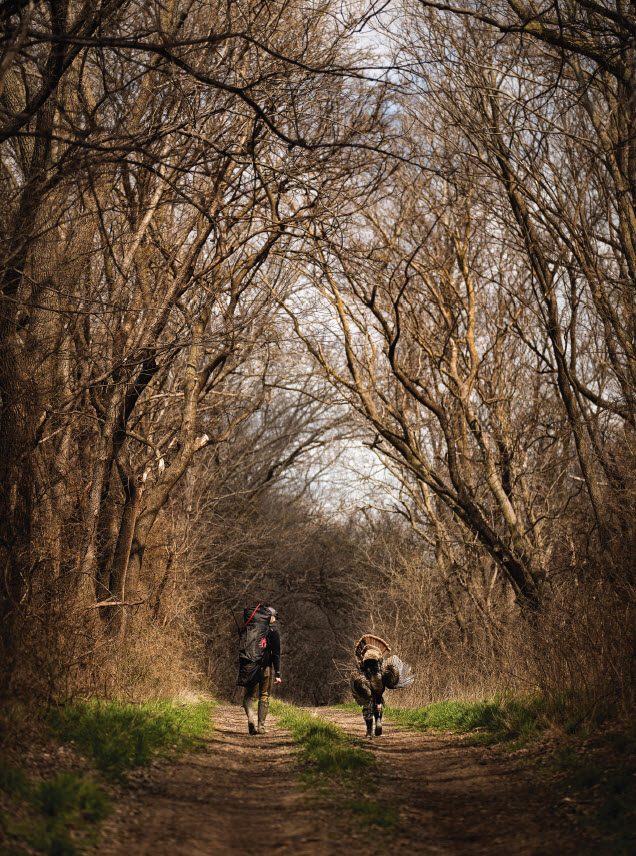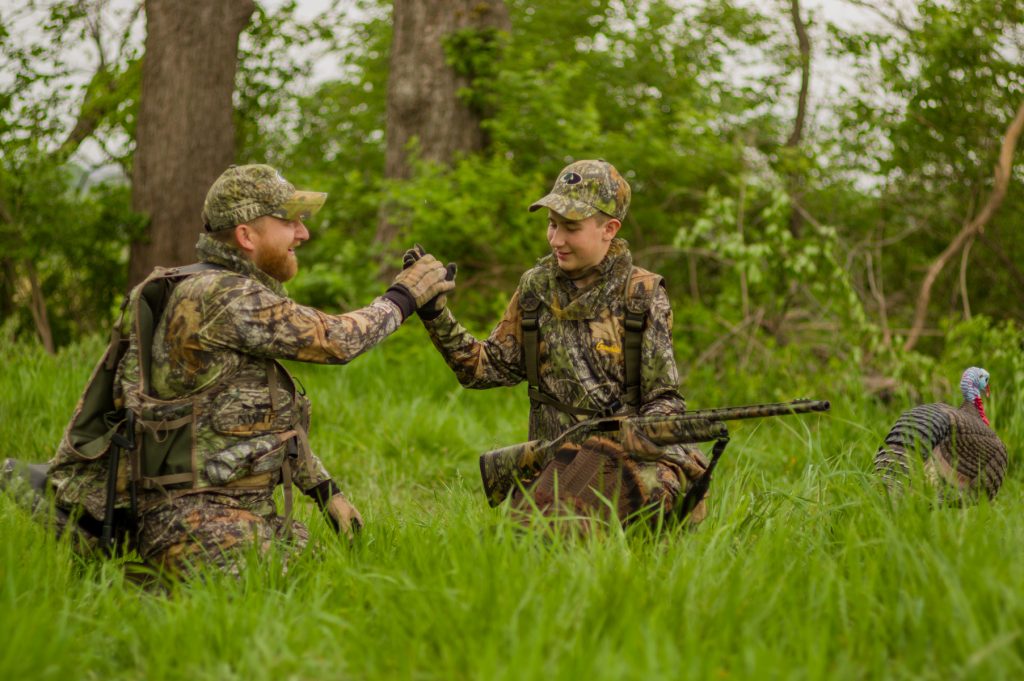Flying Solo
Learn how to set up a turkey-hunter-in-training for success when it’s time for them to go it alone.
It was time. And it was the perfect situation. My middle son, Ethan, and I had spent the previous evening glassing two groups of South Dakota turkeys from a hilltop until the birds went to their respective roosts. We returned the next morning as dawn ebbed against river bluffs to the east.
“You ready?” I asked as we reached the hilltop in the quarter-light. He was.
Per the plan we’d hatched, he went into the drainage ahead, where several gobblers had tagged along with a gaggle of hens. I dropped into the coulee behind, where another group of birds had gone.
We knew the land well and had discussed a couple of options for his setup. But he was going to make his own call based on where the birds gobbled.
He was on his own. In big country. Armed with what I hoped I had taught him. With no dad at his side in the blind or calling from the tree behind.
He was flying solo.
The Goal
As a hunting community, we talk a lot these days about introducing folks to hunting. What we don’t talk about as much are the hows and whens of the ultimate goal — sending them out on their own to become the independent license-buying conservationist hunter we need.

Here are three steps and considerations for making sure your novice hunter — whether your progeny or friend — is ready to hunt turkeys on their own. Here’s what to look for:
Growth
It sounds simple, but first ask yourself the most basic question: Is my mentee ready to go solo and hunt turkeys on their own? Three considerations come to mind.
Safety — for themselves and others — comes first. Have they demonstrated sound principles for handling a firearm or archery gear with their own and others’ well-being in mind? Are they ready with a mindset focused on enjoyment and safety, not killing things at all costs? These can be difficult questions to review, but they represent the first level of exploration when someone thinks they might be ready to hunt on their won.
Skills – The second consideration involves the skills and techniques your mentee has learned. Much comes down to the experience you’ve given them and the responsibilities of the hunt they have already handled. Examples include setting up a blind, operating various calls, sitting still, knowing when and when not to move, and aiming and shooting well. As a mentor, you should let them learn hands-on more as you go.
Interest – Have they asked to hunt on their own? That’s good. Are they ready to try hunting on their own, per the aforementioned topics? Even better. Are you ready to set them free? Great. There is another reality: If you have raised or developed a turkey assassin for whom you do all the work, it might be time to make it a real apprenticeship before letting them fly solo.
Ground
Where will the new hunter go hunting? You have many considerations. Private land or public? Your spot, or will they find a new one?
During the hunt that started this story, my son and I were hunting the same general area but independently. That can be a good plan for initial solo hunts.
Ultimately, you will need to coach that mentee-turning-independent-hunter how to secure their own hunting spots, whether public or private land.
No, you are not expected to give up your spots. And let them know clearly the ethical requirements of not coming back and overrunning public spots you show them, or raiding your private spots, unless you OK either.
My friend and turkey hunting sage Earl Mickel once said the secret to turkey hunting success is having a good place to hunt turkeys. Help your new solo hunter find that path.
Gear
My sons grew up turkey hunting in the handme-down, scrounge-it-up gear I could muster. They looked like ragamuffins, but it was camo, and turkeys don’t care. But then the young men got their own duds. I donated starter calls and advised them on getting their own. They shot borrowed shotguns from my safe, but now in their 20s, they are getting their own firearms.
Bottom line: It takes some attention to detail from the mentee and coaching from you to get a basic kit of turkey hunting gear that will serve them well. Help the new hunter fill their vest with what they need and avoid gadgets and items that don’t add value.
If you think your new solo hunter needs a blind, help them find one they like and can erect. Many new solo hunters aren’t ready to be out and exposed to the prying eyes of turkeys. I’m not a turkey hunting sage, but I have my own Mickel-esque phrase for new turkey hunters: If you want to have fun, run and gun. If you want to kill a turkey, wait them out in a blind.
Golden Moment
From my seat below a bur oak, I heard gobbling on the roost in Ethan’s coulee, then some roust-abouting from the birds after they must have hit the ground, and then only an occasional outburst from a gobbler.
As is the wont of clear May mornings, the sun took its merry time topping over the rim of the river breaks and into our arenas. But not long thereafter came the boom of a shotgun.
One shot equals game on the ground, my father always said of hunting. But I resisted the urge to wander over. A hunter needs time.

A half-hour later, though, I packed up and began climbing the ridge. As I did, a turkey hunter topped it from the other side, a gobbler flopping over his shoulder and his face beaming with a big smile. But mine was bigger.
CONNECT WITH US
National Wild Turkey Federation
770 Augusta Road, Edgefield, SC 29824
(800) 843-6983
National Wild Turkey Federation. All rights reserved.
